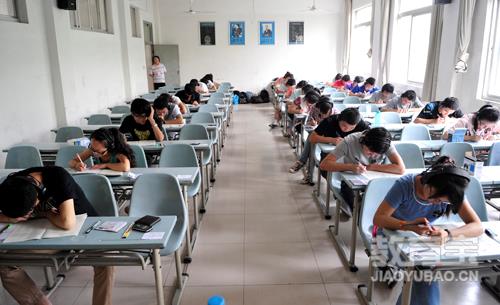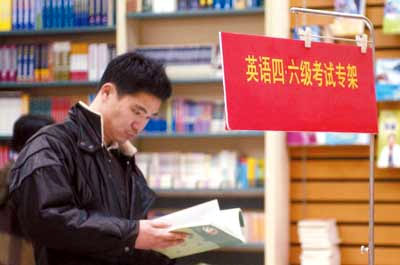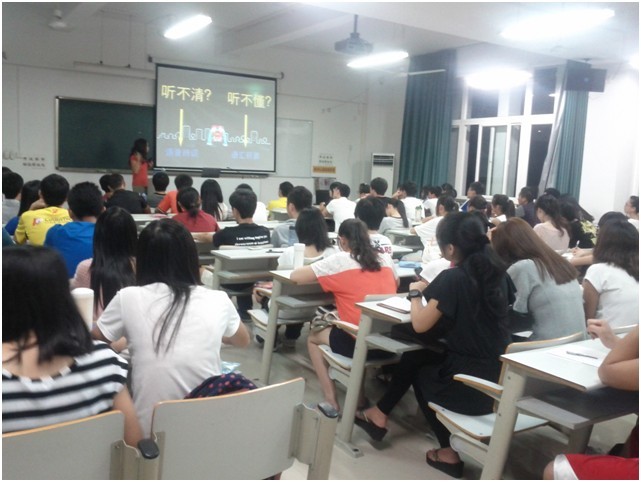 返回
教育头条
返回
教育头条

英语四级新闻听力分享 四六级备考
今天小编要给大家分享的是英语四级新闻听力,希望对大家有所帮助。
听力文本
Japan plans to remove South Korea from its list of top trading partners in a dispute that may be linked to historical tensions between the sides. The cabinet of Japanese Prime Minister Shinzo Abe approved the plans on Friday. As a result, Japan would remove South Korea from a list of what are known as "white countries" with preferred trade relations. Such countries enjoy easier trade requirements than other nations. Starting on August 28, however, Japanese companies must seek government permission to export to South Korea products that could have military uses. South Korean President Moon Jae-in called the move "selfish" and warned it could damage the world economy. Earlier, a South Korean presidential spokesperson promised a "resolute" answer to Japan's move. Last month, Japan restricted exports of a small number of important, high-technology materials to South Korea. The materials are used to make semiconductors and parts for electronic products that are important to South Korea's export-fueled economy. Japan's decision to remove South Korea from the list is widely considered an action to answer rulings by South Korea's Supreme Court. In October, the court ordered some Japanese companies to pay Koreans who performed forced labor during World War II. The Japanese government says all such disputes were settled in a 1965 treaty between the two sides. Under the same agreement, the countries established diplomatic ties. Japan has the world's third largest economy, while South Korea has the 11th largest. A trade war between the two could affect not only East Asia, but the world economy. It could threaten the international technology supply chain because South Korea produces about 70 percent of the world's computer memory chips.
Question 1: What’s the main idea of this news report?
Question 2: According to the news report, what do Japan’s white countries mean?
三、重点词汇
1. cabinet: a small group of the most important people in government, who advise the President or Prime Minister and make important decisions 内阁
2. preferred: liked or wanted more than anything else 更合意的,更可取的,更好的
3. resolute: determined in character, action, or ideas 坚决的;有决心的;坚定的
4. semiconductor: a material, such as silicon, that allows electricity to move through it more easily when its temperature increases, or an electronic device made from this material 半导体
5. treaty: a written agreement between two or more countries, formally approved and signed by their leaders 条约;协定
四、背景知识
日本首相安倍晋三8月2日召集内阁会议,正式决定将韩国从日本的出口贸易对象“白名单”中除,相关加强对韩商品出口规制措施将从8月28日起执行。韩国对此反应强烈,声称将采取反制措施。2日的内阁会议之后,日本经济产业省方面表示,今后在贸易管理上,对那些适用“优遇”的国家,将不再使用“白国”的说法,而会根据这些国家的出口管理实际状况将其分为四类,以往享受“优遇”的“白国”被归入“A组”。韩国的“白国”待遇被取消后没有转入“A组”,而是被转入了“B组”。日本经产相世耕弘成在宣布内阁会议的正式决定时,着重强调了“韩国是**被移出白名单的对象”。 韩国总统文在寅2日下午召开临时内阁会议,对日方措施表示非常遗憾,同时谴责日方作出了令事态进一步恶化的、极其鲁莽的决定,韩方将断然采取相应措施。文在寅批评说,日本无视韩方和国际社会的努力,放任日韩关系恶化,今后发生任何事态的全部责任由日本负担。如果韩国遭遇蓄意的经济打击,日本也将承受巨大损害。
听力文本
Japan plans to remove South Korea from its list of top trading partners in a dispute that may be linked to historical tensions between the sides. The cabinet of Japanese Prime Minister Shinzo Abe approved the plans on Friday. As a result, Japan would remove South Korea from a list of what are known as "white countries" with preferred trade relations. Such countries enjoy easier trade requirements than other nations. Starting on August 28, however, Japanese companies must seek government permission to export to South Korea products that could have military uses. South Korean President Moon Jae-in called the move "selfish" and warned it could damage the world economy. Earlier, a South Korean presidential spokesperson promised a "resolute" answer to Japan's move. Last month, Japan restricted exports of a small number of important, high-technology materials to South Korea. The materials are used to make semiconductors and parts for electronic products that are important to South Korea's export-fueled economy. Japan's decision to remove South Korea from the list is widely considered an action to answer rulings by South Korea's Supreme Court. In October, the court ordered some Japanese companies to pay Koreans who performed forced labor during World War II. The Japanese government says all such disputes were settled in a 1965 treaty between the two sides. Under the same agreement, the countries established diplomatic ties. Japan has the world's third largest economy, while South Korea has the 11th largest. A trade war between the two could affect not only East Asia, but the world economy. It could threaten the international technology supply chain because South Korea produces about 70 percent of the world's computer memory chips.

Question 1: What’s the main idea of this news report?
Question 2: According to the news report, what do Japan’s white countries mean?
三、重点词汇
1. cabinet: a small group of the most important people in government, who advise the President or Prime Minister and make important decisions 内阁
2. preferred: liked or wanted more than anything else 更合意的,更可取的,更好的
3. resolute: determined in character, action, or ideas 坚决的;有决心的;坚定的
4. semiconductor: a material, such as silicon, that allows electricity to move through it more easily when its temperature increases, or an electronic device made from this material 半导体
5. treaty: a written agreement between two or more countries, formally approved and signed by their leaders 条约;协定
四、背景知识
日本首相安倍晋三8月2日召集内阁会议,正式决定将韩国从日本的出口贸易对象“白名单”中除,相关加强对韩商品出口规制措施将从8月28日起执行。韩国对此反应强烈,声称将采取反制措施。2日的内阁会议之后,日本经济产业省方面表示,今后在贸易管理上,对那些适用“优遇”的国家,将不再使用“白国”的说法,而会根据这些国家的出口管理实际状况将其分为四类,以往享受“优遇”的“白国”被归入“A组”。韩国的“白国”待遇被取消后没有转入“A组”,而是被转入了“B组”。日本经产相世耕弘成在宣布内阁会议的正式决定时,着重强调了“韩国是**被移出白名单的对象”。 韩国总统文在寅2日下午召开临时内阁会议,对日方措施表示非常遗憾,同时谴责日方作出了令事态进一步恶化的、极其鲁莽的决定,韩方将断然采取相应措施。文在寅批评说,日本无视韩方和国际社会的努力,放任日韩关系恶化,今后发生任何事态的全部责任由日本负担。如果韩国遭遇蓄意的经济打击,日本也将承受巨大损害。
谢谢你,阅读了这篇文章。我是教育宝学习顾问王敏,如何选择四级六级考试是一个比较复杂的问题,四级六级考试市场鱼龙混杂,广告铺天盖地,每家机构都把自己包装的天花乱坠,如何选择一家合适的机构?这是很多人都头疼的问题,选错机构不是费钱,而是浪费时间。教育宝始终保持中立客观,累计服务200万用户,致力于连接培训机构和学员,打造可靠、高效、让人放心的一站式互联网学习服务平台,如果你不知道四级六级考试机构如何选,那么请让我来帮助你,加我微信:18560125702,我会根据你的实际需求,依靠8年从业经验,从海量课程中选择适合您的服务。返回教育宝头条
【免责声明】本文仅代表作者本人观点,与教育宝无关。教育宝对文中陈述、观点判断保持中立,不对所包含内容的准确性、可靠性或完整性提供任何保证。请读者仅作参考,特此声明!





